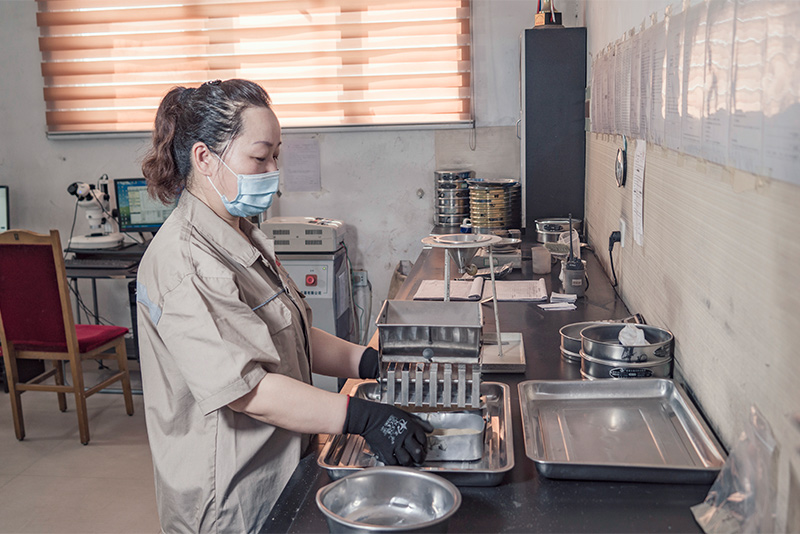Resin Coated Sand Plant Revolutionizing the Casting Industry
The casting industry has undergone significant transformations over the years, and one of the most influential developments has been the introduction of resin coated sand. This innovative material, known for its superior properties, has led to the establishment of specialized resin coated sand plants that cater to the needs of modern manufacturing processes. This article discusses the importance, process, and advantages of resin coated sand, alongside the role of dedicated plants in the casting industry.
Resin coated sand is the result of coating high-quality silica sand with a thermosetting resin. This process enhances the sand's binding properties, allowing it to retain its shape during the casting process and produce intricate details with excellent surface finish. The need for such advanced materials has arisen due to the increasing demands for precision and efficiency in metal casting, particularly in industries such as automotive, aerospace, and consumer goods.
The production of resin coated sand begins with selecting high-grade silica sand, which is essential for achieving the desired properties. The sand is first cleaned and prepared to ensure that impurities do not interfere with the coating process. Once the raw sand is ready, it is mixed with a specific type of resin, often a phenolic or furan resin, in a controlled environment. This blending process ensures that each grain of sand is uniformly coated, achieving optimal performance.
After the coating process, the sand is cured to stabilize the resin and promote its bonding capabilities. This curing can be accomplished through various methods, including heat, which activates the resin and forms a robust structure. Curing is a critical phase in the production of resin coated sand, as it directly influences the sand's overall performance in casting applications.
resin coated sand plant

One of the most significant advantages of resin coated sand is its ability to produce exceptionally smooth surfaces on casted products. Unlike traditional sand systems, which may leave rough textures and imperfections, resin coated sand minimizes these issues, resulting in a higher quality finish. This is particularly beneficial in sectors where precision is paramount, such as in automotive engine components or intricate tooling for machinery.
Additionally, resin coated sand offers superior dimensional accuracy, reducing the need for extensive post-casting machining. The high thermal stability of the resin-coated grains allows for better performance during high-temperature applications, making it ideal for casting metals like aluminum and iron. Furthermore, this type of sand is also recyclable, which contributes to more sustainable manufacturing practices by minimizing waste and reducing raw material requirements.
The implementation of resin coated sand plants is a testament to the industry's response to the evolving needs of manufacturers. These specialized facilities are equipped with advanced technologies to ensure the consistent production of high-quality resin coated sand. Automation plays a pivotal role in these plants, enhancing efficiency, reducing human errors, and ensuring that the coating process is precise and reproducible.
Moreover, the strategic location of resin coated sand plants near manufacturing hubs minimizes transportation costs and ensures timely delivery of materials. This logistical advantage contributes significantly to the overall efficiency of the casting process, allowing manufacturers to maintain productivity and meet market demands effectively.
In conclusion, resin coated sand plants are revolutionizing the casting industry by providing high-quality materials that enhance the performance and efficiency of casting processes. With benefits such as superior surface finish, dimensional accuracy, and ease of recycling, resin coated sand has become a preferred choice among manufacturers. As the industry continues to evolve, the role of these specialized plants will undoubtedly become even more critical, driving innovation and sustainability in metal casting. The integration of advanced technologies and practices within resin coated sand production will pave the way for a new era of manufacturing, where precision and quality are paramount in meeting the challenges of modern industrial demands.
Post time:ડીસેમ્બર . 18, 2024 05:08
Next:Effective Methods for Sanding Stainless Steel Surfaces with Optimal Results
